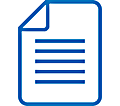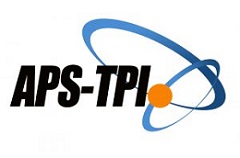Feasibility Study of Problem-Based Blended Learning Models to Improve Literacy
Abstract
One of the learning models is the problem-based learning model, which is then implemented in a blended manner. The feasibility study aimed to observe that the developed model could improve students' literacy skills. The feasibility study was conducted at a junior high school in Semarang Regency in February for approximately three weeks. Meanwhile, the number of respondents observed was 20 students in the eighth grade.There were two main factors in the observation of the picking test: the first was the social interaction of students in groups, and the second was the interaction of students with learning resources. On the other hand, the third factor was the impact of the interaction, i.e., the product or group solution.To facilitate observation, one class was divided into several groups, each consisting of up to five people. The results revealed relatively significant results because each group could develop learning resources to solve the problems through google search, then give good results, and solve the problems presented by the teacher.
Keywords
Full Text:
PDFReferences
Arrosyad, M. I., & Nugroho, F. (2021). Pengembangan Model Pembelajaran Membaca dan Numerasi di Tengah Evolusi Konsep Literasi. Jurnal Basicedu, 5(6), 6378–6384. https://doi.org/10.31004/basicedu.v5i6.1758
Baragash, R. S., & Al-Samarraie, H. (2018). Blended learning: Investigating the influence of engagement in multiple learning delivery modes on students’ performance. Telematics and Informatics, 35(7), 2082–2098. https://doi.org/10.1016/j.tele.2018.07.010
Bekker, T., Bakker, S., Douma, I., van der Poel, J., & Scheltenaar, K. (2015). Teaching children digital literacy through design-based learning with digital toolkits in schools. International Journal of Child-Computer Interaction, 5, 29–38. https://doi.org/10.1016/j.ijcci.2015.12.001
Bervell, B., Nyagorme, P., & Arkorful, V. (2020). LMS-Enabled Blended Learning Use Intentions among Distance Education Tutors: Examining the Mediation Role of Attitude Based on Technology-Related Stimulus-Response Theoretical Framework (TR-SR-TF). Contemporary Educational Technology, 12(2), ep273. https://doi.org/10.30935/cedtech/8317
Delgadova, E. (2015). Reading literacy as one of the most significant academic. 5th International Conference of the Spanish Association of Language and Literature Education.
Fahmi, F., Syabrina, M., Sulistyowati, S., & Saudah, S. (2020). Strategi Guru Mengenalkan Konsep Dasar Literasi di PAUD Sebagai Persiapan Masuk SD/MI. Jurnal Obsesi : Jurnal Pendidikan Anak Usia Dini, 5(1), 931–940. https://doi.org/10.31004/obsesi.v5i1.673
Ho, E. S. C., & Lau, K. (2018). Reading engagement and reading literacy performance: effective policy and practices at home and in school. Journal of Research in Reading, 41(4), 657–679. https://doi.org/10.1111/1467-9817.12246
Kurniawan, W., Darmaji, D., Astalini, A., Kurniawan, D. A., Hidayat, M., Kurniawan, N., & Farida, L. Z. N. (2019). Multimedia physics practicum reflective material based on problem solving for science process skills. International Journal of Evaluation and Research in Education, 8(4), 590–595. https://doi.org/10.11591/ijere.v8i4.20258
Ling, V., Sotnikova, L., Rodionova, I., Vasilets, I., Zavjalova, O., Fedorovskaya, V., & Datkova, E. (2020). Online educational resources for students and digital barrier. TEM Journal, 9(1), 373–379. https://doi.org/10.18421/TEM91-51
Nasrulloh, I., & Ismail, A. (2018). ANALISIS KEBUTUHAN PEMBELAJARAN BERBASIS ICT. Jurnal Pendiidkan Teknologi Informasi Dan Komunikasi (PETIK), 3(1), 28–32. https://doi.org/10.31980/jpetik.v3i1.355
Roemintoyo, R., Nugraheni, C. D., Saputro, I. N., & Budiarto, M. K. (2021). Implementation of Production Based Learning Models in the Workshop Program of Education of Building Engineering Education Sebelas Maret University. Journal of World Englishes and Educational Practices, 3(6), 43–45. https://doi.org/10.32996/jweep.2021.3.5.5
S.Sirate, S. F., & Ramadhana, R. (2017). PENGEMBANGAN MODUL PEMBELAJARAN BERBASIS KETERAMPILAN LITERASI. Inspiratif Pendidikan, 6(2), 316. https://doi.org/10.24252/ip.v6i2.5763
Salim, H. (2019). Penelitian Pendidikan : Metode, Pendekatan, dan Jenis. In Jakarta: Kencana.
Shurygin, V., Berestova, A., Litvinova, T., Kolpak, E., & Nureyeva, A. (2021). Universal Models and Platforms in E-Learning. International Journal of Emerging Technologies in Learning, 16(9), 63–75. https://doi.org/10.3991/ijet.v16i09.19697
Simanjuntak, M. P., Hutahaean, J., Marpaung, N., & Ramadhani, D. (2021). Effectiveness of problem-based learning combined with computer simulation on students’ problem-solving and creative thinking skills. International Journal of Instruction, 14(3), 519–534. https://doi.org/10.29333/iji.2021.14330a
Suryanti, & Wijayanti, L. (2018). Literasi Digital : Kompetensi Mendesak Di Era Revolusi Industri 4.0. Jurnal Pendidikan Dasar. https://doi.org/https://doi.org/10.26740/eds.v2n1.p1-9
Widiyono, A., & Millati, I. (2021). Peran Teknologi Pendidikan dalam Perspektif Merdeka Belajar di Era 4.0. Journal of Education and Teaching (JET), 2(1), 1–9. https://doi.org/10.51454/jet.v2i1.63
Wijaya, E. Y., Sudjimat, D. A., & Nyoto, A. (2016). Transformasi Pendidikan Abad 21 Sebagai Tuntutan. Jurnal Pendidikan, 1, 263–278.
Refbacks
- There are currently no refbacks.





.png)













